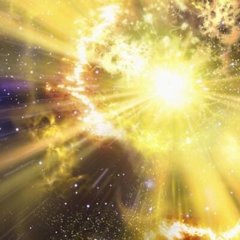-
Content count
4,406 -
Joined
-
Last visited
-
Days Won
32
Everything posted by Cobie
-
I hope the “b” is a typo.
-
[off topic (not an unpopular opinion)] @Bindi I like your new profile picture. To me it speaks about the same issue as in your above post.
-
Do you know the original title?
-
From the ‘180 commandments of Lord Lao’: #20 Do not frequent the emperor or his officials; do not engage in marital or other family relationships with them. https://www.thedaobums.com/topic/51119-180-precepts-of-lord-lao/?do=findComment&comment=935075 From DDJ Ch. 5: 聖 人 不 仁 sheng4 ren2 bu4 ren2 the emperor is not humane, 以 百姓 為 芻狗 yi3 bai3xing4 wei2 chu2 gou3 treats people as disposables. I think the meaning is in the last words:
-
I do apologise. I have remove my posts.
-
Hi, greetings to you too. Welcome to the forum. The Brook Ziporyn DDJ translation, yeah, I’m not a fan. E.g. Ch. 6, 玄牝 “obscure she-beast”. … https://books.google.nl/books?id=GoBwEAAAQBAJ&printsec=frontcover&hl=nl&source=gbs_ge_summary_r&cad=0#v=onepage&q&f=false There are lots of threads on later Daoism. Have a browse around. Enjoy.
-
Hi amosharari. Welcome to the forum. Christopher is on the forum
-
True. But apparently not always: ”… the Chinese dragon was also a demonic and monstrous creature. … The descriptions of the dragon as a monstrous creature, though eclipsed by the prevalent accounts of its auspicious nature, are widely present in ancient Chinese literature. … Wang Chong’s Lun Heng records a demonic yellow dragon encountered by the early sage king Yu 禹 …” https://link.springer.com/article/10.1007/s40636-015-0025-y
-
Re. the author “Sima grew up in a Confucian environment, and Sima always regarded his historical work as an act of Confucian filial piety to his father. Emperor Wu … sentenced Sima to death. At that time, execution could be commuted either by money or castration. Since Sima did not have enough money to atone his "crime", he chose the latter … [His ‘crime’ was unrelated to his writings about Laozi.] Sima Qian ( c. 145 – c. 86 BC)” https://en.wikipedia.org/wiki/Sima_Qian#:~:text=Sima grew up in a,existed in the Han dynasty. “During the Han Dynasty, emperor Wu Di (reigned 141–87 B.C.E.) made Confucianism the official state ideology.” https://education.nationalgeographic.org/resource/confucianism/
-
老 子 其 猶 龍 邪 lǎozi, qí yóu lóng xié Lao Zi’s principle: the emperor is malefic. ~~~ Kroll 猶 < interchangeable with 猷 you2 … principle > 龍 < emblematic of celestial and imperial power > 邪 < unorthodox; malefic; ye2 sentence-final interrogative GP equivalent to 也+乎 >





